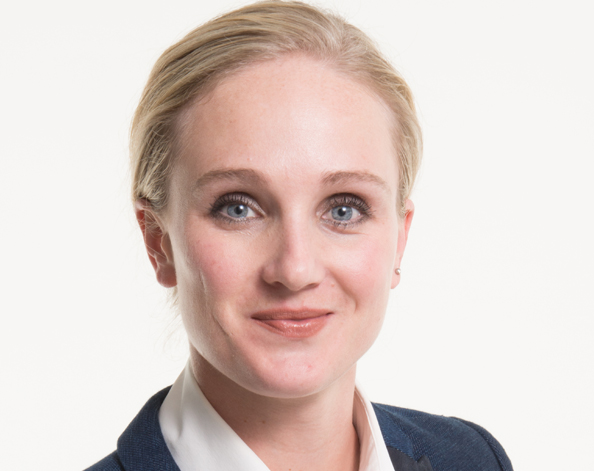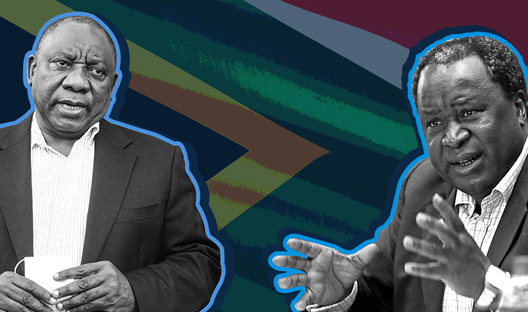Get Focus insights straight to your inbox
Outside of casting electoral votes, there’s not much the person on the street can do to influence the policy, behaviour, and decision-making of the government. Indeed, even the leader of the opposition himself saw his parliamentary heckling ignored during the recent 2021 budget speech.
Finance Minister Tito Mboweni’s indifference to the gallery noise was partly due to the positive developments he was able to report – a welcome break from recent tradition.
It’s not that all is well with the financial position of our country; far, far from it. But in an environment where the government could easily have loosened the purse strings and used the pandemic as a scapegoat, they didn’t. And then the revenue they were expecting to collect surprised to the upside.
The result is that government debt, originally on track to reach Everest-sized proportions, now looks more like Kilimanjaro. It’s good news for South Africans.
A quick look at the numbers
It’s no secret that our government has been spending more than it earns, borrowing to pay for the things it can’t afford but which it deems necessary. Many of us watching our credit card bills balloon as we spend our way through the current pandemic might be able to relate. But then we don’t have a line of credit like our government does.
South Africa's GDP was around R4,9 trillion in 2019, with total government debt equal to 63,3% of that figure. In 2020, that number ratcheted up, mostly due to the pandemic, to 80% of GDP. Finance Minister Mboweni neatly summed up the situation when he said, “we owe a lot of money to a lot of people”.
There’s no exact science to it, but for emerging markets like South Africa, a debt/GDP ratio above 100% is considered unsustainable – a red flag on the inevitable road to debt default.
In September last year that critical ratio was forecast to peak at 95,3% in 2025/26, perilously close to unsustainable territory and a massive concern for the future prosperity of our country.
But with higher-than-expected tax collections from corporates (thanks to the mining industry) and VAT (thanks to consumer spending), combined with relatively disciplined government expenditure, the ratio is now projected to peak at 88,9% of GDP. The improvement in our sovereign debt prospects is what is referred to in financial terms as "fiscal consolidation".
But Annabel Bishop, Investec Chief Economist, says South Africa’s current projections still do not show the marked fiscal consolidation necessary to bring debt down to the 60% of GDP level considered acceptable for emerging market, middle income economies.
"South Africa’s current projections still do not show the marked fiscal consolidation necessary to bring debt down to the 60% of GDP level considered acceptable for emerging market, middle income economies," she says.

South Africa’s current projections still do not show the marked fiscal consolidation necessary to bring debt down to the 60% of GDP level considered acceptable for emerging market, middle income economies.
Put another way, there’s still a mountain to climb.
A tax 180
Just six months ago, our government laid plans to raise R40 billion in additional revenue through higher taxes over a three-year period. The recent revenue windfall, amounting to approximately R100 billion, has allowed it to not only scrap those plans, but to offer a smidge of tax relief instead.
The personal income tax brackets will be increased by 5%. And because that figure is higher than inflation, most individuals will pay less tax.

This move will provide R2,2 billion in tax relief. Most of that relief will reduce the tax burden on the lower- and middle-income households
Elizabeth Fick, joint head of Investec Tax & Fiduciary, points out that the R2,2 billion in tax relief will reduce that tax burden on low- and middle-income households. However, she cautioned high-net-worth individuals, who have complex financial arrangements, to make every effort to ensure their tax affairs are fully compliant and in order, warning that SARS is becoming a lot more efficient at collecting taxes using technologies like machine learning and artificial intelligence.
Another encouraging notion from National Treasury was on personal tax.
"Treasury recognises that the marginal tax rate in SA is very high relative to peers, as is personal income tax as a % of GDP, and that any further increases will hinder economic recovery. Instead, Treasury intends to lower personal tax rates as the tax base is widened," says Chris Holdsworth, Chief Investment Strategist, Investec Wealth & Investment.

Treasury recognises that the marginal tax rate in SA is very high relative to peers, as is personal income tax as a % of GDP, and that any further increases will hinder economic recovery. Instead, Treasury intends to lower personal tax rates as the tax base is widened.
Of course, any sustainable tax relief for South Africans remains contingent on better GDP growth. There’s only so much expenditure that can be cut, and, as Holdsworth explains, Treasury recognises that the marginal tax rate in SA is very high relative to peers, as is personal income tax as a % of GDP. "Any further increases will hinder economic recovery," says Holdsworth. "Instead, Treasury intends to lower personal tax rates as the tax base is widened.”
Holdsworth also mentions that the Section 12J initiative, which allowed investors to deduct 100% of their investment from their taxable income, will not be extended beyond the original deadline of June 2021.
That may be a blow to some domestic investors. But the same investors will take heart from the country's improved fiscal outlook.
Investing locally might be lekker
Let’s start with the bigger picture. The global economy is likely to recover as vaccines are administered. Pair this with low interest rates and the huge fiscal stimuli injected into the world’s largest economies, and you have a solid recipe for risk-on sentiment.
Emerging markets assets, like those found in South Africa, revel under such circumstances.
And because many other EMs have shown less fiscal prudence than SA during the pandemic, it’s plausible that our market, and the assets therein, will pique the interest of foreign investors. Bishop echoed these sentiments in her note:
“The lowering in SA’s debt trajectory has seen markets view the budget positively. And given that global investor sentiment still favours EM portfolio assets, it’s not surprising that the rand momentarily pierced the R14.40/USD mark today.”
What’s more, the yields available on many SA assets are akin to an oasis in the desert.
Our bonds have some of the highest real yields in the world and many of our domestic-facing equities pay attractive dividends; both could help global investors solve for the omnipresent lack of income-generating assets available for their portfolios. If you’re trying to decide between the two asset classes, Holdsworth offered the following insight:
“Given that the revenue improvement was in line with expectations and the tax relief for consumers and corporates was a surprise, it was probably a better budget for equities than the bond market.”
The combined effect of strong capital flows into emerging markets, and the relative attractiveness of SA within that universe, has the following implications for individual investors:
1. The rand is likely to find support – a stronger currency is useful for investors looking to increase their offshore allocation, but as long as our currency is strong, our domestic assets should perform well relative to their offshore counterparts.
2. Interest rates are likely to remain low – given both the domestic and global growth backdrop, alongside a strong rand and contained inflation, the SARB is unlikely to raise interest rates soon, which means cheap borrowing, and low interest rates on cash balances, for the foreseeable future.
Are you considering property?
Low-interest rates make borrowing cheap. And with inflation set to rise gradually from currently depressed levels, the fixed value of your debt obligation should naturally erode over time.
It’s an environment that may bolster the conviction of those considering an investment into property.
The obvious caveat for the above statement is that the type of property matters; the prognosis for residential property is, perhaps, a little clearer than it is for its commercial cousin. A long investment time horizon would also be prudent given that the economic road to recovery is likely to be a bumpy one.
A similarly discerning approach should be taken when looking at indirect property investment opportunities – listed REITs, for example – with attention paid to what kind of property populates their portfolios, and whether their debt levels are sustainable.

Get all Investec's insights on the latest Budget Speech and SONA
Our economists, tax experts, personal finance and investment experts unpack what the latest fiscal measures mean for income, savings and daily expenses of individuals and businesses.




